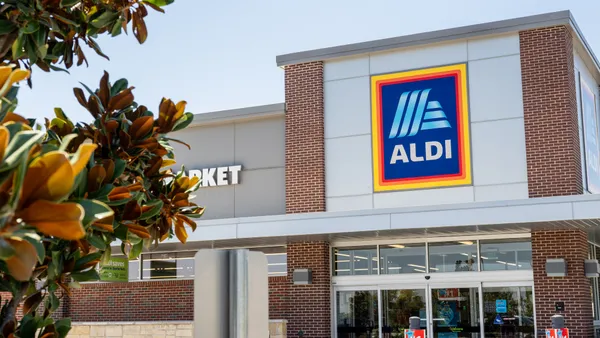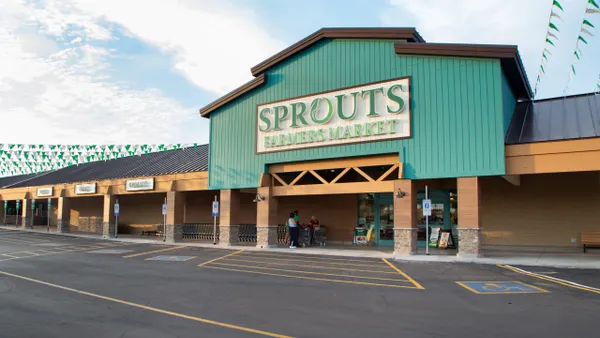Dive Brief:
- Hy-Vee is once again reserving one hour each weekday morning for shoppers considered at higher risk of contracting COVID-19, the grocery chain announced Monday.
- The reserved time slot, from 7 a.m. to 8 a.m. Monday through Friday, is dedicated to customers with underlying health conditions as well as those who are at least 60 years old or expectant mothers.
- Hy-Vee’s decision to reinstate the reserved shopping hour comes as the number of people in the United States testing positive for COVID-19 surges.
Dive Insight:
Hy-Vee is ramping up its efforts to prevent the coronavirus from spreading in its stores at a time when the number of people infected by the pathogen each day is setting daily records.
Several of the eight Midwestern states where the grocer operates stores are among the 10 states where the risk of catching COVID-19 is considered the highest, Forbes reported. Those states include Iowa, Minnesota, Nebraska, South Dakota and Wisconsin.
Hy-Vee originally set aside the 7 a.m. to 8 a.m. time slot every day of the week for high-risk customers in March, when grocery stores across the country began implementing a range of safety measures that also included plexiglass shields at checkout counters, reduced operating hours and prohibitions on reusable bags.
Many grocers, including Hy-Vee, rolled back steps they took early on in the pandemic as communities loosened restrictions and infection rates declined or leveled off.
In July, Costco reversed plans to cut back on the number of hours set aside for shoppers 60 or older and people with health conditions that could raise their risk of coming down with COVID-19, according to USA Today. Costco had said it would switch from limiting the 9 to 10 a.m. period to people in these groups every weekday to only blocking off the hour on Tuesdays and Thursdays, the newspaper reported.
Grocers have had to reintroduce other safety and supply chain measures during this late-year virus surge. H-E-B and others have implemented purchase limits on items like toilet paper and cleaning products. In Washington and Illinois, grocers are required to limit customer traffic to 25% of store capacity.









